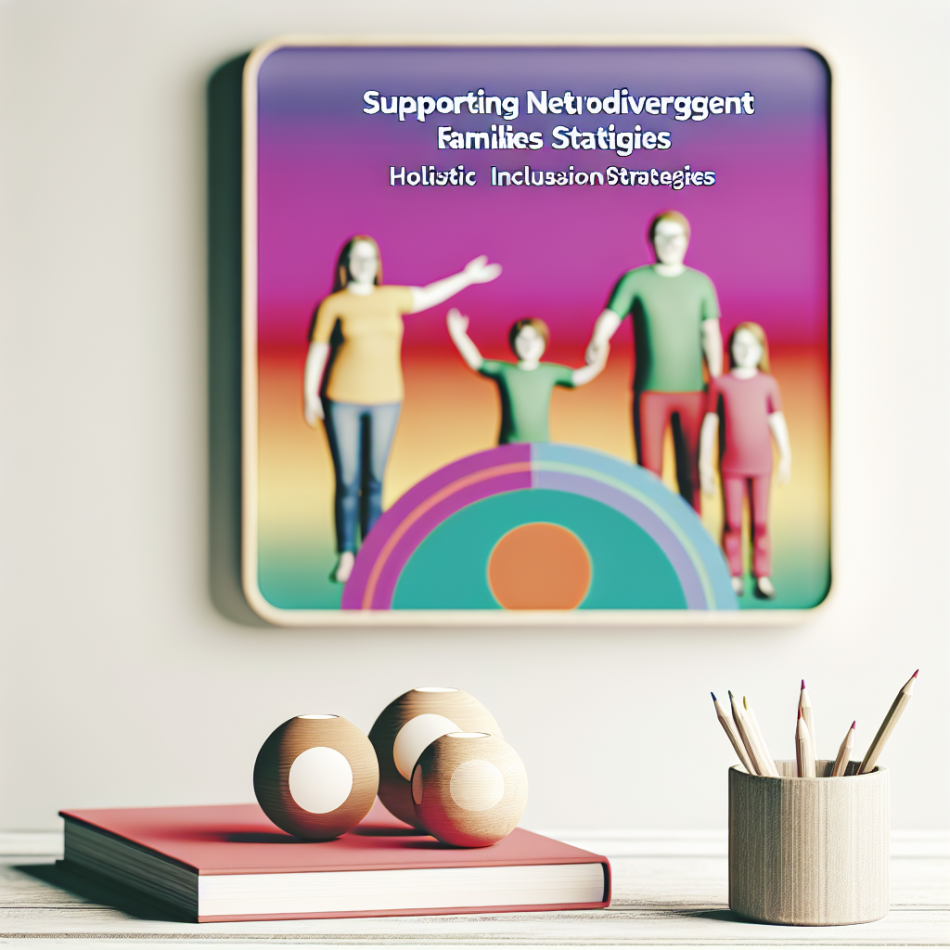Supporting Neurodivergent Families: A Holistic Approach to Inclusion
In a world where neurodiversity is increasingly recognised, supporting neurodivergent families—not just individuals—requires intentional strategies rooted in flexibility and understanding. Organisations play a pivotal role in fostering environments where entire families feel valued, heard, and empowered. This article explores how institutions can move beyond individual-focused frameworks to create inclusive ecosystems that address the unique challenges and strengths of neurodivergent families, ensuring no one is left behind.
Understanding Neurodiversity in a Family Context
Neurodivergent families often navigate a complex web of needs, preferences, and communication styles. While individual support is essential, a family-centric approach acknowledges that challenges—such as sensory sensitivities, routine disruptions, or social interactions—affect the entire household. For example, a child with autism may thrive with structured routines, but parents or siblings might also require support to adapt their lives without compromising their own well-being. Recognising these interconnected dynamics is the first step towards meaningful inclusion.
Tailored Resources for Collective Wellbeing
Effective support begins with accessible, adaptable resources designed for families. This includes:
- Workshops and training that equip parents, carers, and siblings with tools to understand neurodivergent traits, such as sensory processing differences or communication preferences.
- Family counselling services that address relational dynamics, reducing stress and fostering mutual understanding.
- Financial assistance programmes to alleviate the costs of therapies, adaptive technologies, or specialised childcare.
By addressing practical and emotional needs holistically, organisations empower families to thrive as cohesive units.
Flexible Policies That Respect Diverse Needs
Rigid structures often exclude neurodivergent families. Flexibility, however, signals respect for their unique circumstances. Organisations can implement:
- Adjustable scheduling for appointments, events, or services to accommodate sensory-friendly times or caregiving responsibilities.
- Remote participation options for families who find in-person interactions overwhelming.
- Customisable communication methods, such as visual guides or simplified language, to ensure clarity for all family members.
Such policies demonstrate a commitment to inclusivity while reducing barriers to access.
Creating Safe, Sensory-Inclusive Environments
Physical and social environments significantly impact neurodivergent families. Organisations can redesign spaces to minimise sensory overload by:
- Offering quiet zones with dimmed lighting and noise-cancelling features.
- Providing clear signage and predictable layouts to reduce anxiety.
- Training staff to recognise non-verbal cues and respond with patience.
Additionally, hosting neurodiversity-affirming events—such as relaxed performances or low-stimulus workshops—ensures families can engage without fear of judgement.
Collaboration with Families as Equal Partners
Meaningful support cannot exist without input from neurodivergent families themselves. Organisations should prioritise:
- Regular feedback loops through surveys, focus groups, or advisory panels to shape policies and services.
- Co-creation of support plans that reflect each family’s priorities, whether educational, social, or emotional.
- Advocacy partnerships to amplify family voices in decision-making processes.
This collaborative approach ensures solutions are relevant, sustainable, and rooted in lived experience.
Building Community Networks for Sustained Support
Isolation exacerbates the challenges faced by neurodivergent families. Organisations can bridge gaps by fostering connections through:
- Peer support groups where families share strategies and celebrate successes.
- Partnerships with local businesses to create neurodiversity-friendly spaces in schools, parks, or leisure venues.
- Public awareness campaigns that challenge stereotypes and promote acceptance within the wider community.
These networks not only provide practical assistance but also cultivate a culture of belonging.
Conclusion: Embracing Flexibility as a Foundation for Inclusion
Supporting neurodivergent families demands more than isolated interventions—it requires systemic change. By prioritising flexible policies, sensory-inclusive environments, and collaborative partnerships, organisations can create ecosystems where families feel understood and empowered. The journey towards inclusion is ongoing, but with empathy and adaptability, institutions can ensure that neurodivergent families thrive, not just survive. Ultimately, it is through collective effort and unwavering understanding that we build a world where every family belongs.
